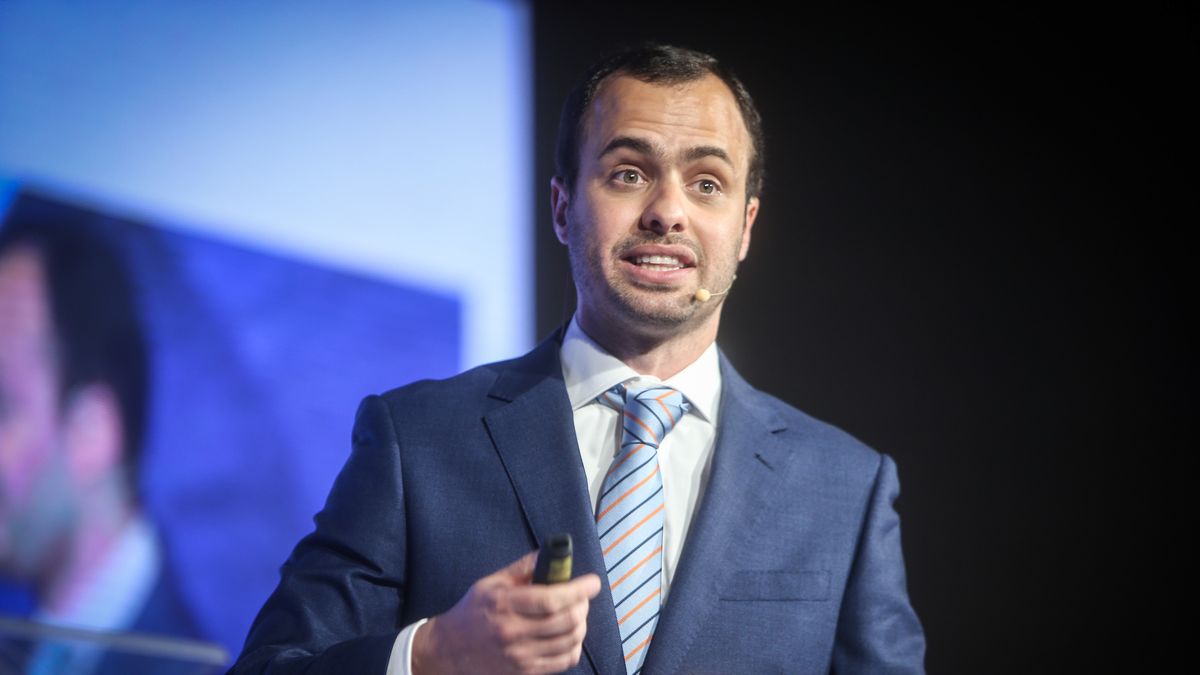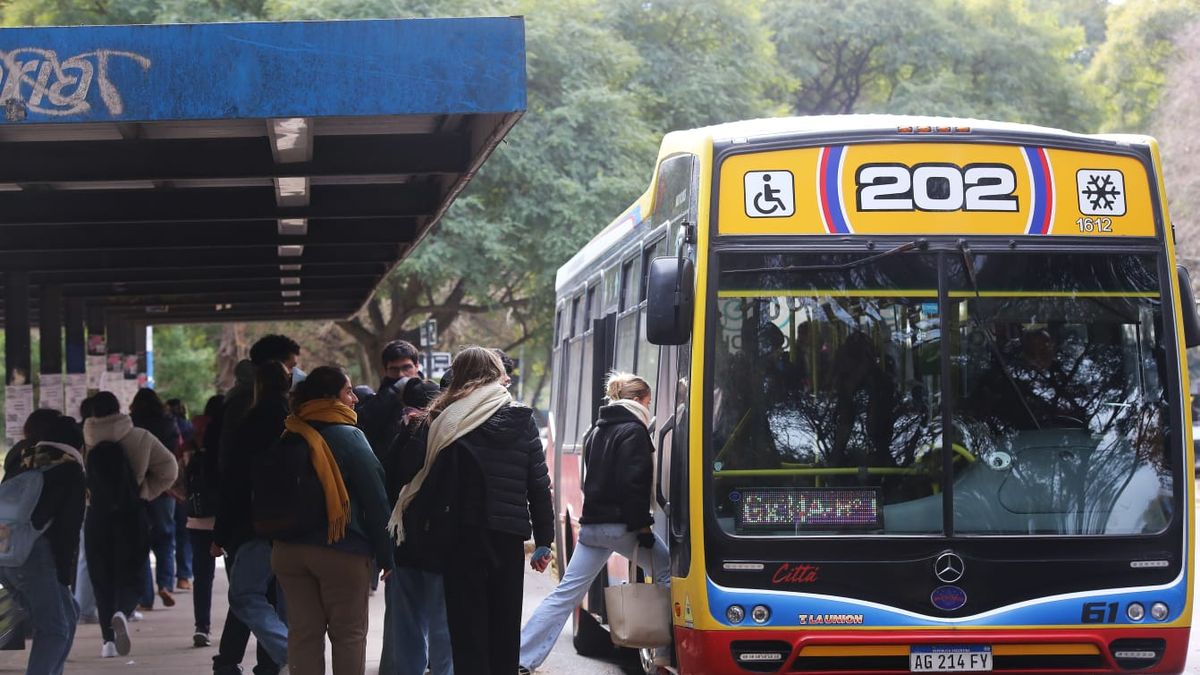“It is not about doing something particularly revolutionary, but about giving it a new impetus to an agenda in which the country has been advancing,” the document maintains.
Agustín Iturralde CED.jpeg
The executive director of the CED, Agustín Iturralde, during the presentation of the 2025-2030 Agenda for Uruguay.
— Despite its brevity, the agenda presents several proposals. Which ones are the most important or should be addressed first?
What we put there is what we see that at this stage of the Uruguay we must and we can do. The order will depend on the politicians, our contribution is to try to put clear ideas in that discussion in which those who later have to implement this will see that yes and that it cannot be done, what is viable. Some things may be a little further away and will come later.
There are some things that are more obvious: the issue of economic opening and the delay we have in that matter; he Mercosur; continue working on the macro stability and at the bottom of the inflation. Then there is an agenda that is not so obvious but that has been entering the public agenda with force, which is the pro-competition agenda. Because Uruguay It is an expensive country to live in and it is an expensive country to produce, and our hypothesis is that this happens because in many markets we have low levels of competition.
— Uruguay is characterized by its institutions, but political sectors think differently about some things. In that sense, and given the possibility that the Frente Amplio will return to government in 2025, do you see it as feasible that the reforms you propose, more in line with the current administration, are carried out in the way you propose them?
It’s hard to know. If I am guided by what we have seen of the programmatic bases, it is difficult for me to imagine it. It is difficult to know which look is going to end up predominating in the Broad Front, But from what one has seen of the more organic discussion, I do not see things close to this, although there are things that we all agree on, such as the social part.
All parties have the obligation to try to impose clarity on the discussion, to convey clear ideas and to set the agenda. The good thing that has happened in Uruguay It is that almost all governments have done something relevant that the one that came after did not change it. And when governments have done some important things, well, it’s up to the next one to do something, right?
Reforms not necessarily popular
— You talk about “not necessarily popular” reforms, and many of these ideas are those that are discussed and implemented at the regional and global level, which do not have immediate results. What happens if people see, in the short term, a deterioration in their socioeconomic conditions?
Uruguay has been able to process difficult things. The perfect example today is the issue of pension reformwhich is much more uncomfortable for the opposition than for the government, contrary to what was predicted, it does not represent a political cost.
At the time, if you let yourself be carried away by the surveys and they asked “do you want to work until you are 65 or until you are 60?”, which was clearly the most controversial part of the reform, the majority wanted to work until you were 60. The role of politicians It’s not always going after exactly what people want. You have to drive without deviating from social preferences, but with the ability to make decisions. The tax reform The first Front government was not very popular at first, for example.
The politicians who Uruguay you need to have a vision that sometimes you have to go through a winter. Some things, more than unpopular, are of a difficult political economy. Some things we propose have winners and losers. There are many more winners, but it is true that there is a group of losers, often also organized, who have a good capacity for mobilization.
They are reforms that, in general, make noise at the beginning, but later in the medium term they win and have legitimacy.
— On the agenda they point out trade opening as one of the measures to lower prices. What is the cost that this could have on jobs?
There may be some very specific sector affected, but Uruguay already paid the cost of opening in the early ’90s with the Mercosur and with the arrival of all products from China. You have little to lose today, you already paid the costs but did not have all the benefits. There are very few losers with a measure like this, and clearly the gains are for all consumers, for all Uruguayans, because living in a more affordable country It is clearly positive.
Border congestion with Argentina.jpg

The exchange rate difference with Argentina is one of the big problems for Uruguay and deepens the inconveniences of an expensive local economy.
Photo: Daniel Rojas / Underlined
The conditions for the reforms
— The deficit is pointed out as one of the government’s current problems, and it is already noted that the next administration will take office with a deteriorated fiscal situation. How do you see this issue in terms of conditioning to advance certain reforms and budget redistribution?
The next government is going to re-enter with a complex tax situation, we will see how it evolves next year, there may also be some positive surprises. Furthermore, although the tax rates are not going to be loose at all, the tax rate is going to be substantially better. risk country and the credit taking conditions.
Still, there is room to have a Most efficient state in several senses, but in one in particular, which is that we have many activities that are carried out by several independent organizations, with similar tasks. What we propose is the possibility of merge state agencies to give more power to the actions, in addition to the search for other sources of resources that may not involve the tax increase.
— Budget items and spending are also associated with governability and the voting of certain laws. Could this also condition the margin of the next government for the implementation of the reforms?
Looking ahead to the next government, I think so, and that is what happened in this government. The clearest example is the social security reform, which was to save 1.5 billion dollars and ended up generating 100,000, why? Because along the way garments were left.
This is one governance difficulty that it will exist, it is evident, that is why it seems key to me that clarity of ideas is in the first year. There is some scenario in which a parliamentary majority can be thought of, but I think it is the least likely, so we have to rebuild and those constructions are always flimsy The first year is the time when you have to try to process those more difficult things, put them on the table and move forward.
He fiscal management It is going to be one of the biggest challenges that the next government is going to have, which is not going to start with easy things; that it is going to have five years that in principle are not going to be wonderful from the point of view of international conditions; and that there is always a management of power and popular issues through resources. This is where we must go deeper beyond what we propose in the document.
Source: Ambito




